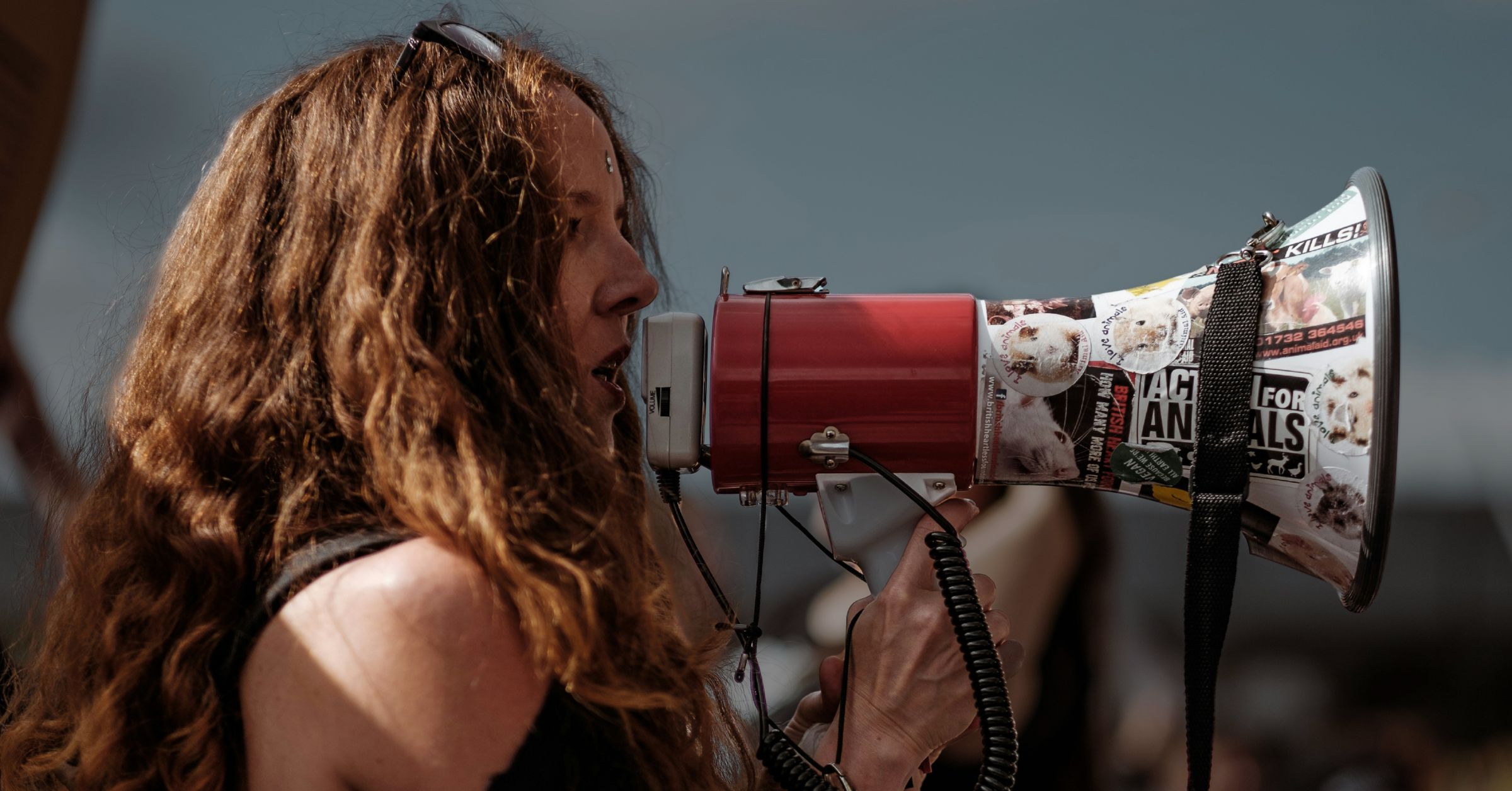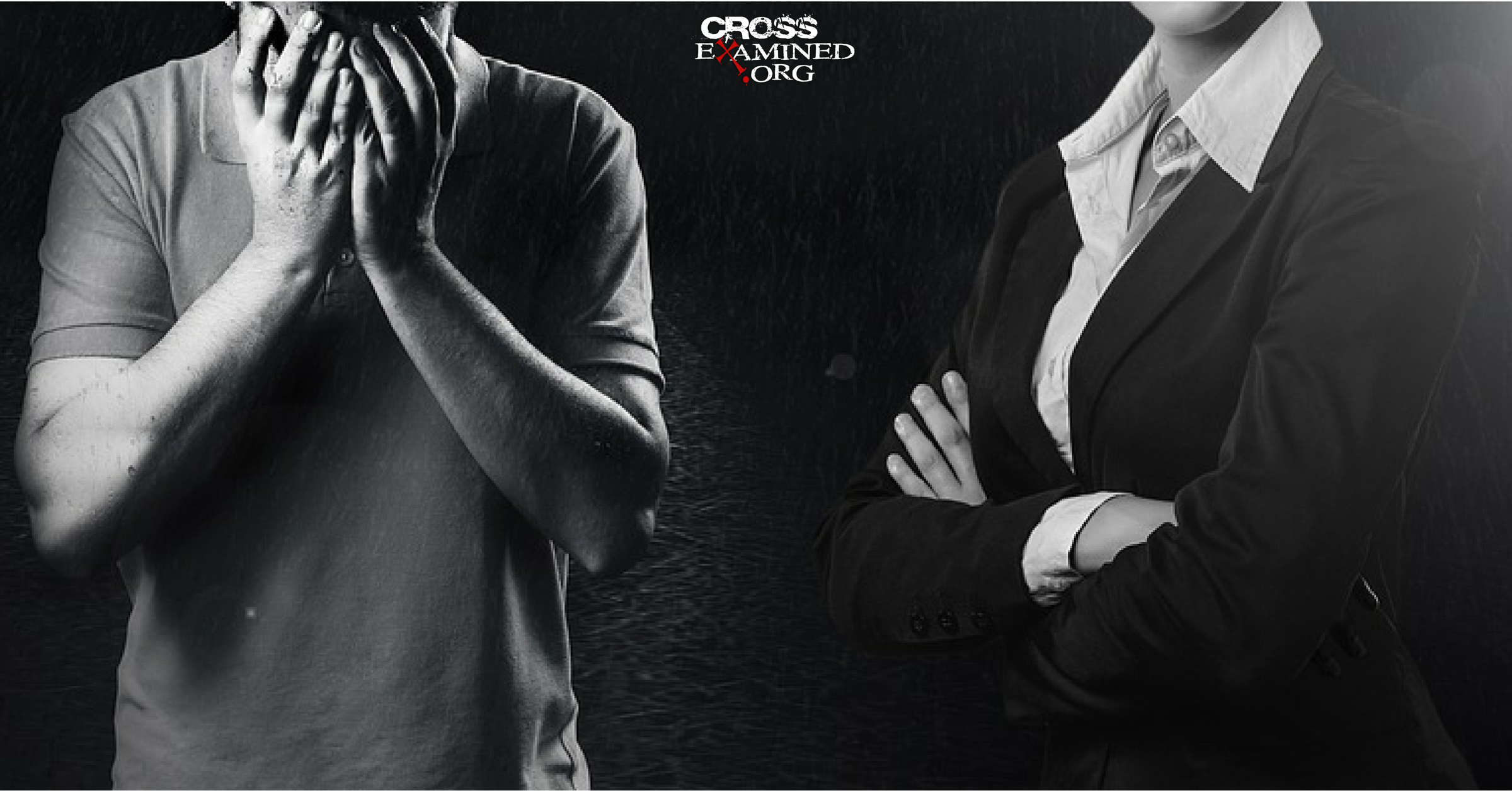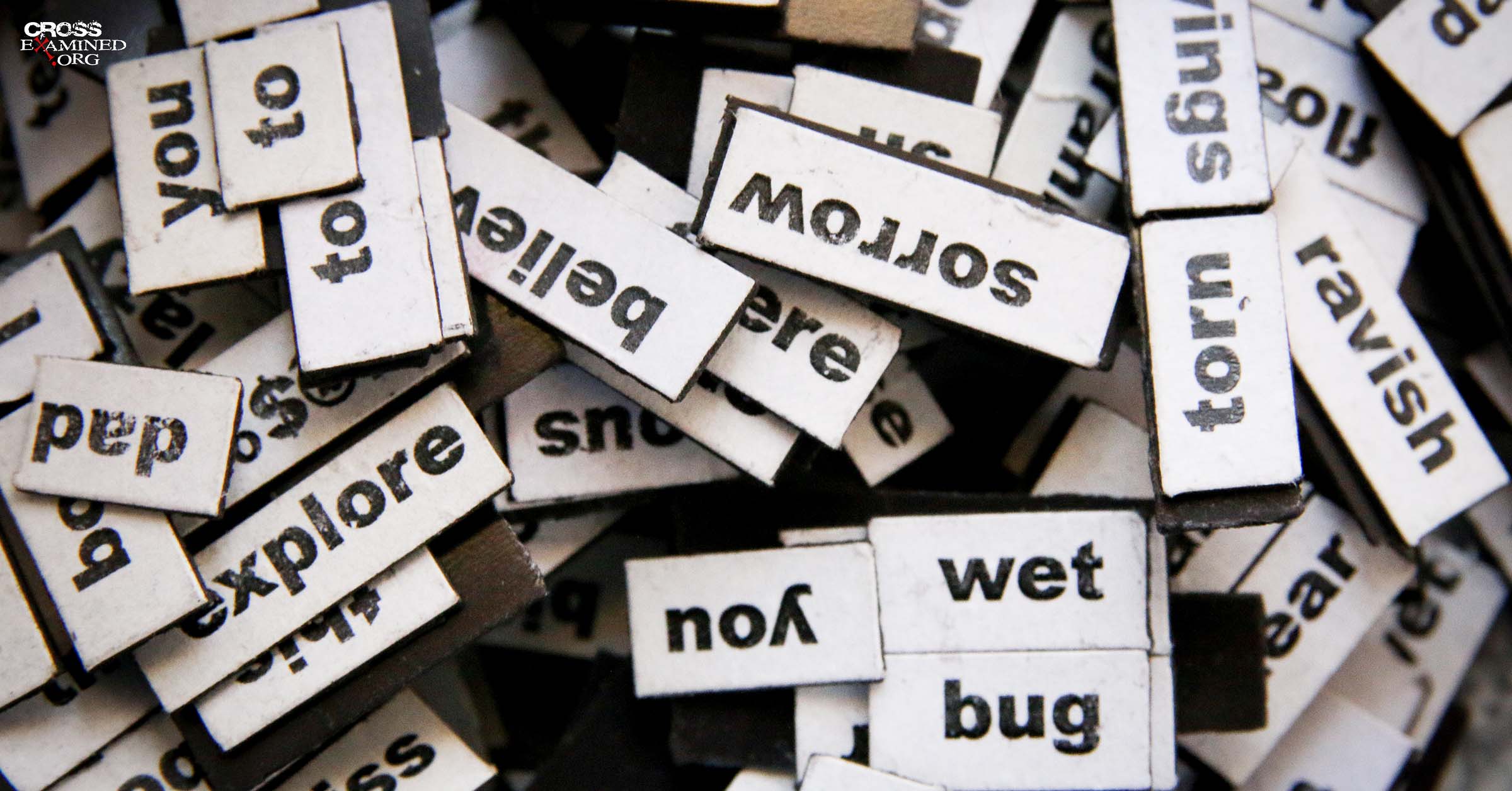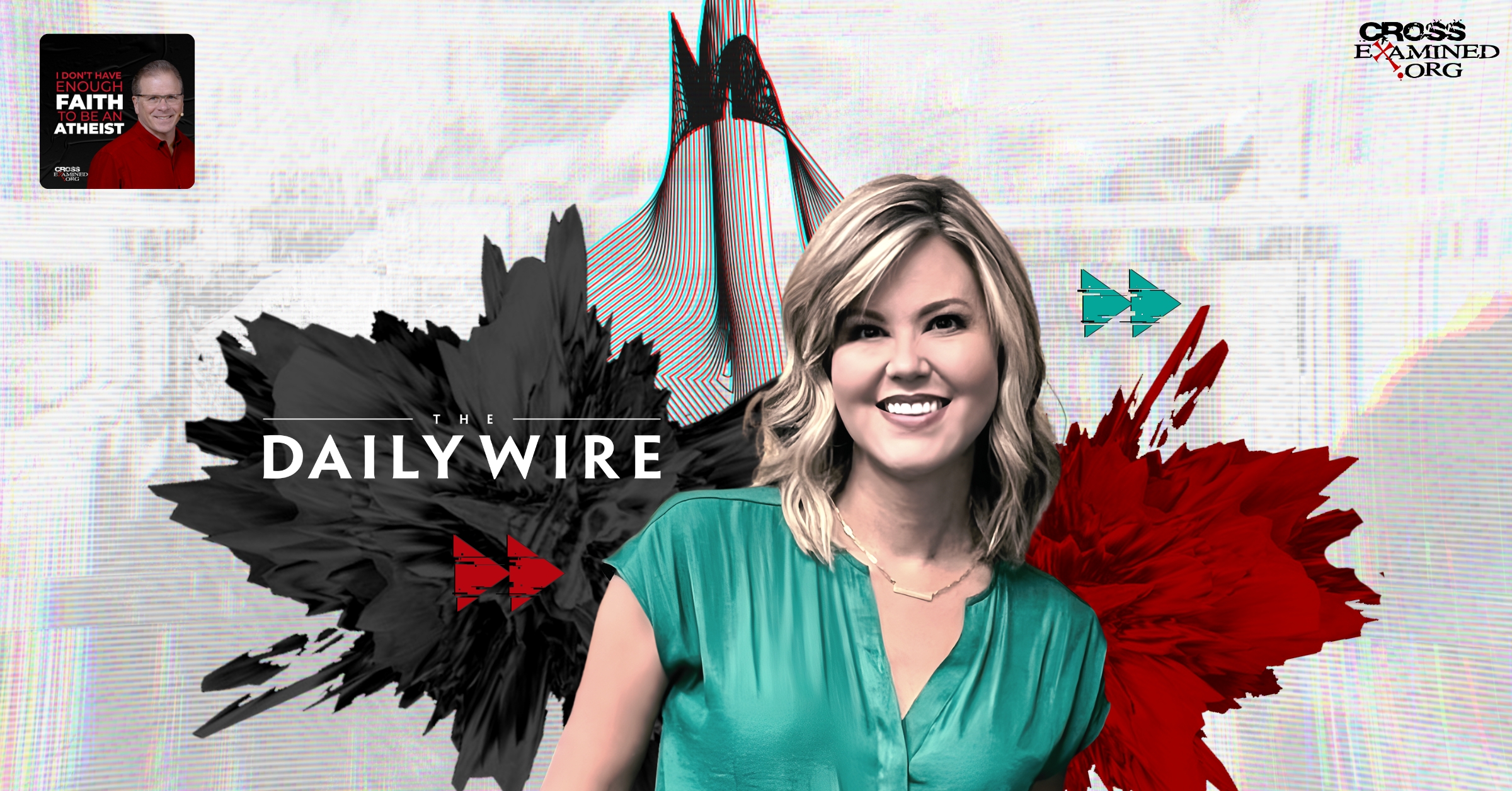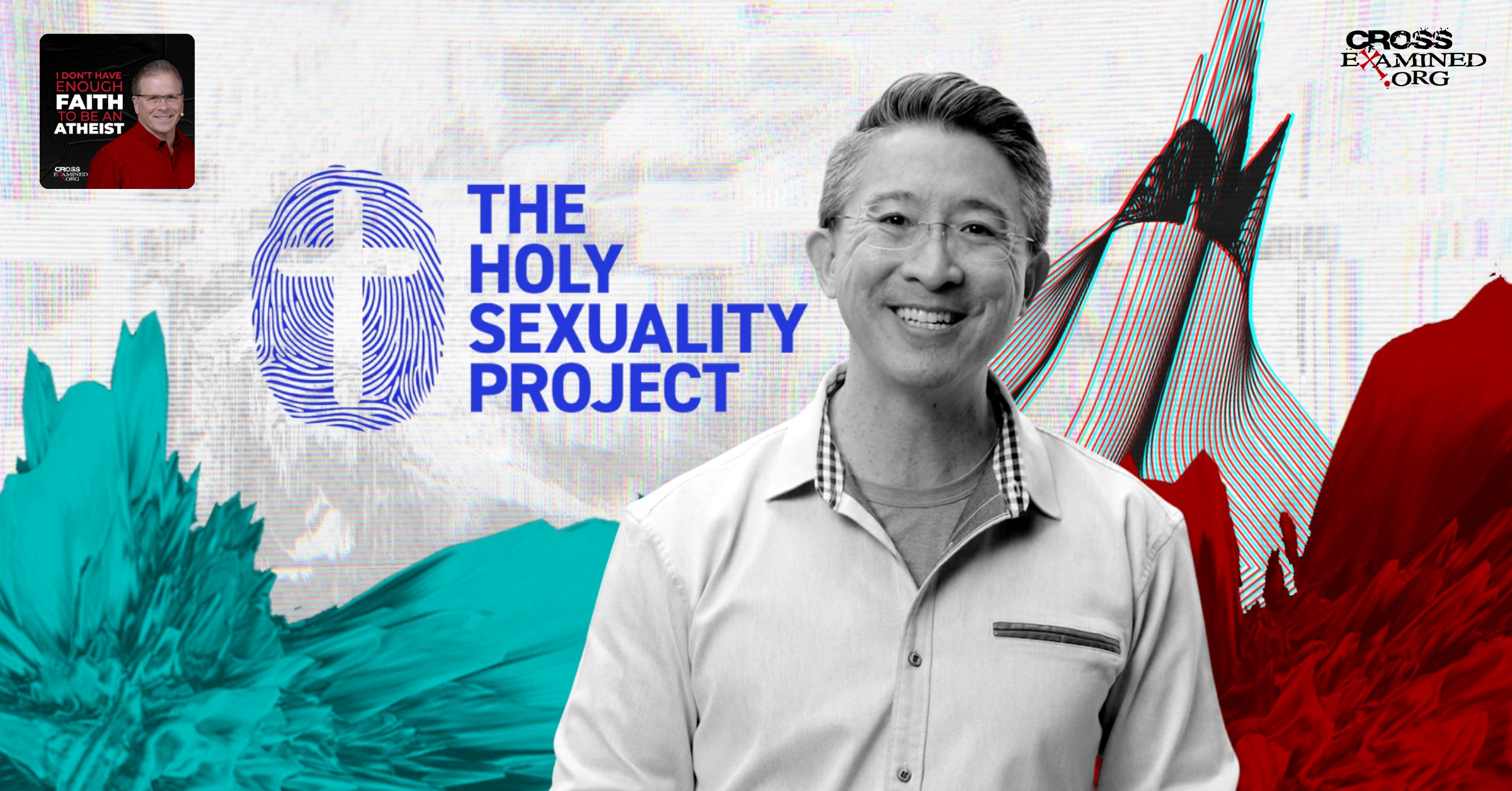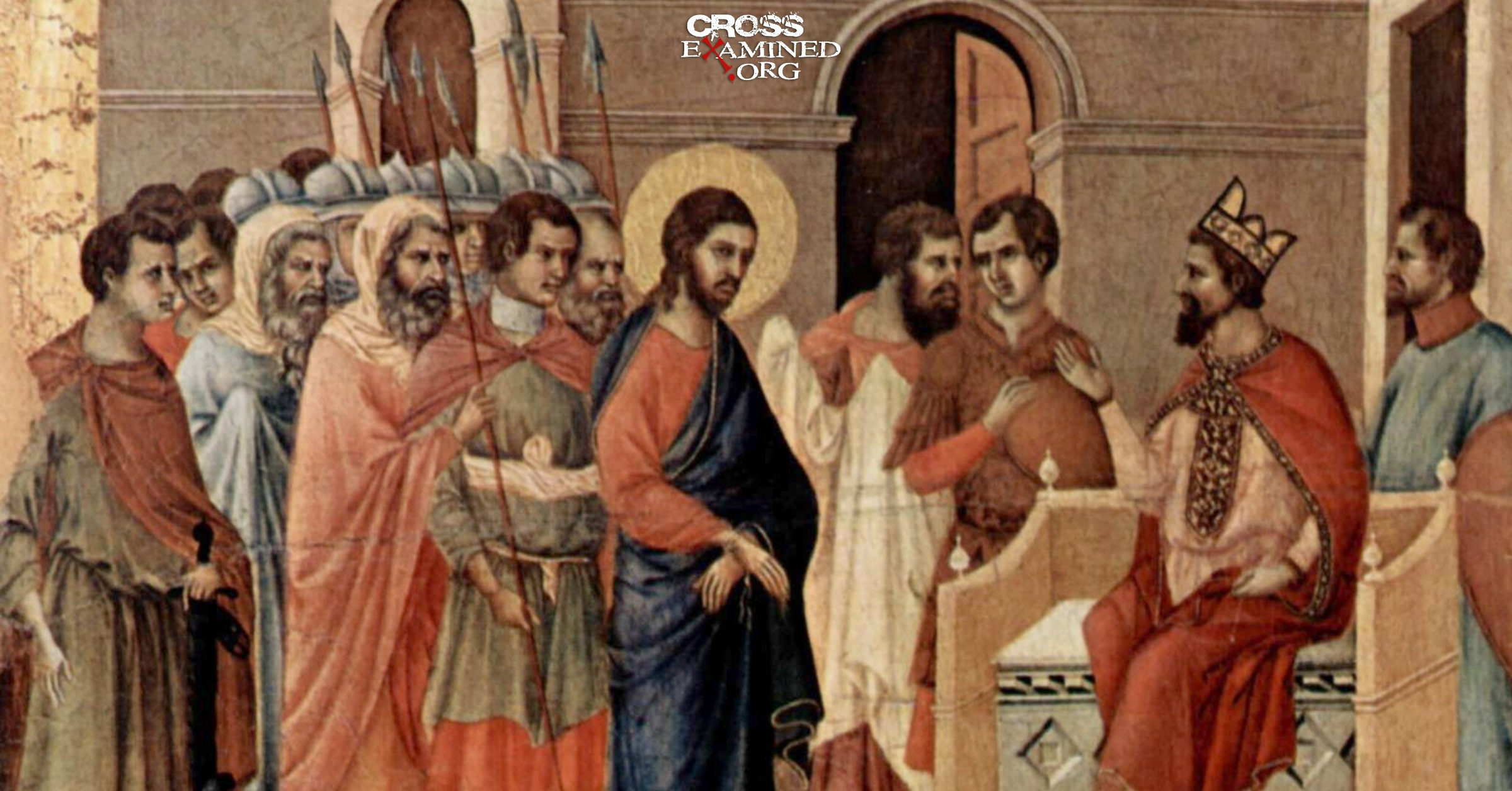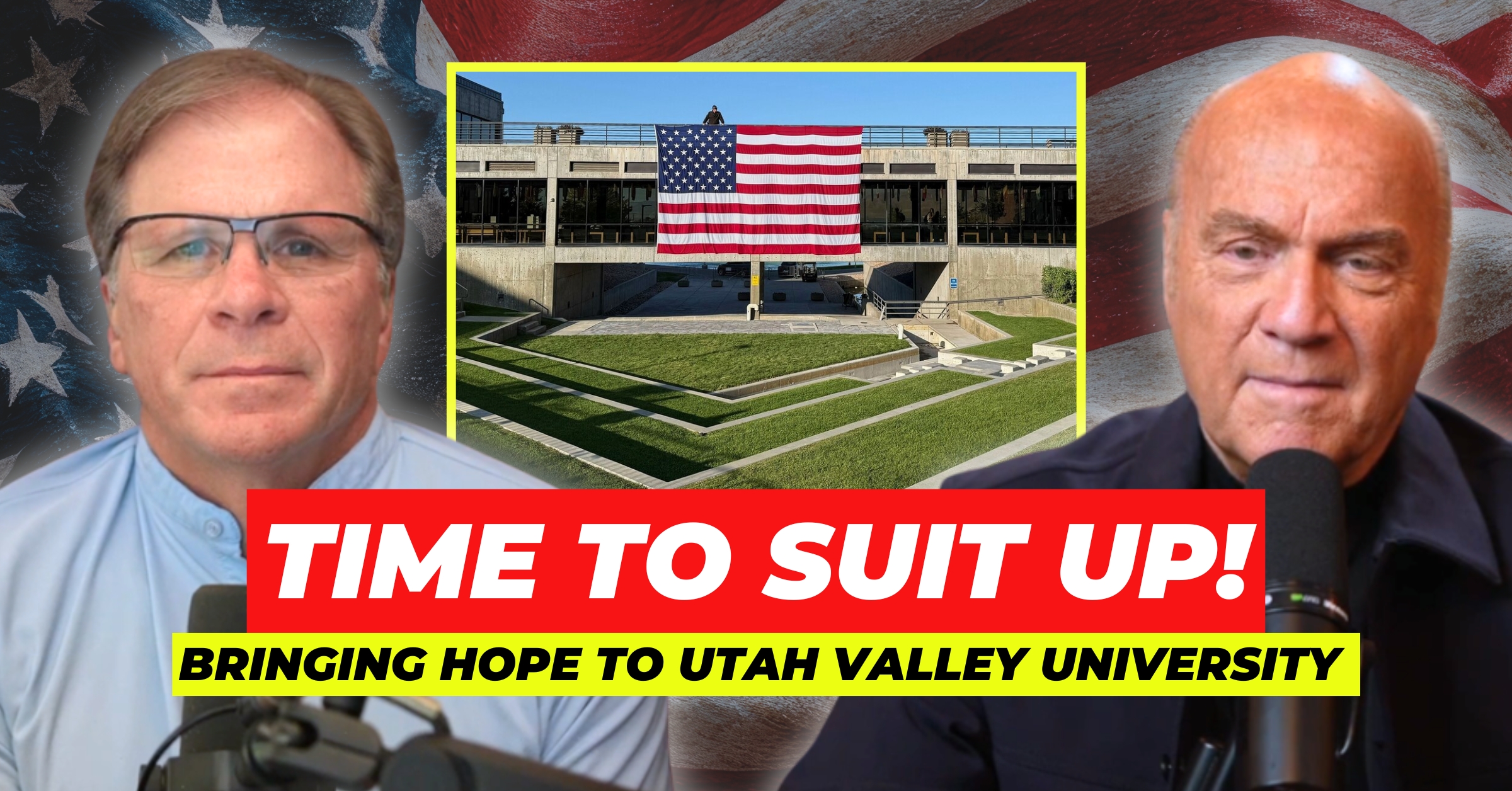Inside the Antifa Mind, Part 1: The Myth of Oppression
Welcome to my new series on the belief system known as Antifa.
If you’re a parent or student, you might be wondering: What do the Antifa professors on my campus actually believe? Why are they pushing communism?
My goal in this first installment is to explain their ideological foundation—how they think the world works—so that you can recognize their framework, understand their appeal, and ultimately see why it collapses under its own weight. This helps you see that such professors, for all of their study, have failed to become wise and cannot explain the basics of reality.
In the next part, we’ll expose the rational incoherence of that foundation. The public refutation of any movement takes away its influence over the minds of its adherents and potential converts once it is exposed as incoherent—when it’s shown to make no sense whatsoever. Its initial appeal, grounded in teenage angst and sin, dissipates went the adult wants wisdom instead of folly.
One of the best resources for understanding the Antifa movement from its own perspective is the 2017 book Antifa: The Antifascist Handbook written by Mark Bray.[1] In it, Bray says: “This book takes seriously the transhistorical terror of fascism and the power of conjuring the dead when fighting back. It is an unabashedly partisan call to arms that aims to equip a new generation of anti-fascists with the history and theory necessary to defeat the resurgent Far Right.”[2]
1. The Organizing Idea: “Oppression”
Every worldview has a core idea that organizes its moral and political vision. For Antifa, that concept is oppression.
To understand their appeal, you have to see that there’s always some admixture of truth—a kernel of reality—that draws people in. This one especially appeals to our sin and natural desire to cry, “life’s not fair.” Because we are made in the image of God we have a natural desire for justice. But our sin corrupts this into a merely materialistic justice.
Here’s what Antifa affirms, in their own way:
- We are born into systems over which we have no control.
- Those systems are mixed with moral evil.
- In every system, there are groups who are “marginalized”—used by the system but denied its benefits.
- In every system, others are born into privilege they didn’t earn and use it to preserve their power.
Even Jim Morrison captured the mood:
“Into this world we’re thrown, into this house we’re born.”
It does seem unfair that some benefit from the lottery of birth while others suffer. These aren’t new insights—they’re ancient philosophical questions about justice, responsibility, and fate. They press us to think, “Are the economic advantages of life really our highest good, or is there something even better than money and status?” The problem isn’t the questions Antifa raises. It’s their answers.
The problem isn’t the questions Antifa raises. It’s their answers.
2. The Marxist “Solution”
Antifa’s answers are, quite simply, catastrophically incoherent. Generally speaking, theirs are the answers of the French and Communist Revolutions. Rousseau, the French philosopher who laid the philosophical groundwork for the revolutionary spirit, taught that humans are born good and crime is an invention of society due to private property. “Man is born free and everywhere he is in chains.”
Similarly, Antifa believes that through violent revolution they can overthrow the oppressive system and rebuild a materialistic utopia of communal living. Bray tells us, “Despite the various shades of interpretation, antifa should not be understood as a single-issue movement. Instead, it is simply one of a number of manifestations of revolutionary socialist politics (broadly construed).”[3] Anything that gets in the way of the socialist revolution, even small government constitutionalism, is “fascist.”
According to Antifa, anything that gets in the way of the socialist revolution, even small government constitutionalism, is “fascist.”
From their initial complaint about inequality, they leap into revolutionary nihilism by implementing old-fashioned Marxist materialism dressed up in radical chic:
- Burn down the existing system—it cannot be reformed, only destroyed.
- Replace it with the standard communist formula: redistribution of wealth and state control of production.
The modern twist is that their Marxism has become decentered and nihilistic, following the ideas of Michel Foucault rather than Joseph Stalin. They still want to overthrow all order, but they prefer to use chaos, bureaucracy, and “cultural revolution” instead of centralized Soviet power.[4]
Bray links the “anti-racism” movement championed by figures like the disgraced Ibram X. Kendi with the LGBTQ+ and decolonizing movements, and all under the umbrella of anti-racism.[5] In other words, all of the causes the radical university professors advocate in university classes across the nation.
That said, they’re always willing to use a government—when it suits their purposes—to impose their ideology on everyone else. This is why they are so sensitive to the appearance that someone else might do it. “The lady doth protest too much, me thinks.” In their view, there are only two options, communists and fascists, or international socialists and national socialists—both are radical leftist ideologies.
3. The Religious Core of a “Materialist” Movement
Despite claiming to be materialists, Antifa offers its adherents an unmistakably religious outlook. This can be seen in the zeal with which they pursue their goals and the strength of fideism by which they believe themselves to be justified. They are anarchists and decentralized but we can still define those terms to see what holds the group together even if it is in a loose sense.
“Antifa should not be understood as a single-issue movement. Instead, it is simply one of a number of manifestations of revolutionary socialist politics (broadly construed). Most of the anti-fascists I interviewed also spend a great deal of their time on other forms of politics (e.g., labor organizing, squatting, environmental activism, antiwar mobilization, or migrant solidarity work).”[6]
Like all cults, they are organized around an “us vs. them” mentality where the “them” are outsiders, followers, sheep, who cannot understand. And because “they” cannot understand, the focus for Antifa is not rational persuasion but “community organizing” to “resist.”
Marx borrowed heavily from Christianity. He gave his own version of the fall and redemption. The fall occurred when private property was introduced, the fallen system is the capitalist exploitation of workers, and redemption occurs (and the millennium is introduced) when the workers of the world unite to overflow that system and replace it with their own.
The materialism of the movement can be found in its often overt anti-Christian, anti-God rhetoric. But it is also present in the absence of anything transcendent when the movement presents its utopian views. The human is a mere evolved animal that is to live in a materialist paradise where its material needs are met. The “revolution” is the only thing that gives the adherents of this religion any hope of a “cause” that transcends their lives and gives some appearance of meaning to their existence. This is why it has such a cult-like zealotry.
4. The “Authenticity” Creed
Their moral ideal is “authenticity.” They teach “existence precedes essence,” meaning you exist first and then define who you are. Echoing Sartre, Foucault said, “It’s my hypothesis that the individual is not a pre-given entity which is seized on by the exercise of power. The individual, with his identity and characteristics, is the product of a relation of power exercised over bodies, multiplicities, movements, desires, forces.”[7] That’s why they attach themselves to the LGBTQ+ movement—because both rest on the same principle: the will to power.
To be “authentic” means to exert your will, to define yourself, to reject all external authority. Again, Foucault said “The relationships we have to have with ourselves are not ones of identity, rather they must be relationships of differentiation, of creation, of innovation. To be the same is really boring.”[8]
This rejection of authority is also why the movement is anti-intellectual at its core. It abandons the authority of reason, dismisses logic as “oppressive” or “logocentric,” and replaces truth with the mantra: “Do what thou wilt.”
This is also applies to means/ends reasoning. All means are justifiable for the end sought by the radical. Saul Alinsky tells us, “If you actively opposed the Nazi occupation and joined the underground Resistance, then you adopted the means of assassination, terror, property destruction, the bombing of tunnels and trains, kidnapping, and the willingness to sacrifice innocent hostages to the end of defeating the Nazis.”[9] There are not “rules” for radicals; they are justified, in their own eyes, to do anything that achieves their goals. If they label their opponent a “Nazi,” as we hear the radical left doing with Charlie Kirk and other conservatives, then they are justified to stop him at all costs.
5. The Luciferian Inspiration
Their own mentors don’t hide their allegiance. For example, in Rules for Radicals, Saul Alinsky’s handbook for modern activism, dedicates itself to the first radical—Lucifer. There, he says, “Lest we forget at least an over-the-shoulder acknowledgment to the very first radical: from all our legends, mythology, and history (and who is to know where mythology leaves off and history begins—or which is which), the first radical known to man who rebelled against the establishment and did it so effectively that he at least won his own kingdom—Lucifer.”[10]
That’s no metaphor. They admire the arch-rebel. Whether or not they think there is a being named “Lucifer,” they worship him as their “light-bearer.” They would rather, as Milton’s Satan put it, “rule in hell than serve in heaven.”
Their concept of being “oppressed” even includes living under God’s law—because to them, God’s authority itself is oppression. Saul Alinsky says, “The Revolutionary Force today has two targets, moral as well as material. Its young protagonists are one moment reminiscent of the idealistic early Christians, yet they also urge violence and cry, ‘Burn the system down!’ They have no illusions about the system, but plenty of illusions about the way to change our world.”[11] They are idealists but without Christ and therefore without any restraint. They see the “system” as structurally racist and bigoted and not worth saving.
They would rather invent their own morality, even if it leads to ruin. The community organizer of Alinksy is to be a political relativist, and Machiavellian, who will use any means necessary to achieve his end. Nothing is off the table.[12]
The technical word for this is “heteronomy.” They opposed any law that originates outside of themselves. But their mistake is that God’s law is written on our hearts. It is a description of our being. God’s law describes the choices we must make to achieve what is best for us as humans. Seeing this, some are willing to take the step of denying their humanity and identifying as animals.
Alinksy goes on to teach about how to be a community organizer. Here he is very clear about the radical’s intentions: “The organizer is in a true sense reaching for the highest level for which man can reach—to create, to be a ‘great creator,’ to play God.”[13] l think of Lucifer as the Phoenix who is cast from heavens, only to rise again in the flames and create his own reality. These radicals are clear that this is their hero and their own aspiration.
6. Be Free in the U.S.A.
The sad irony is that those with communist leanings are nowhere more free to live that out than in the United States. Throughout our history, utopian groups have set up shop to show the rest of us how it is done.
In the United States, you’re free to voluntarily start a commune with others who are like-minded. Many have done this over the last few centuries. Such communes regularly fail disastrously, but you’ll still find groups that try again.
The keyword here is “voluntary.” In the United States, you can work together with others who voluntarily decide to do so. But the French and Marxist revolutionaries want to force everyone else to do it their way.
The United States is built on the idea of rational persuasion. That’s why we began our history with a Declaration of Independence where we presented an argument to the world. By comparison, the American revolution was far less bloody than any of the revolutions that followed. Our goal was not to destroy the British system, but to defend ourselves as having a right to our own system.
When a philosophy is essentially irrational, like that coming out of Marxism, it tends to hate the idea of rational arguments.[14] Instead, it seeks to force others to conform. That is why Antifa does not want to work within a system to change it, but wants to instead overthrow it.
7. What This Reveals
Once you understand these ideas, the Antifa professor’s worldview becomes predictable:
- They see the world as an evil system that must be destroyed.
- They justify rebellion as liberation.
- And they redefine good and evil as power and weakness.
Their entire life’s work rests on shifting sand—a rebellion disguised as moral compassion. Their “system” is built on falsehoods and misunderstandings of reality.
It’s easy to convince people that they are oppressed and that life is unfair. That’s the seductive power of sin: the allure of rebellion.
What’s far more difficult—and far more valuable—is to pursue truth: to see the world as it really is, to understand our fallen condition, and to find redemption not in revolution, but in Christ.
Antifa has nothing lasting to offer its followers. It reduces human life to the material and promises a utopia it cannot deliver. To find meaning in life, we must come to know what is transcendent.
Next in the series:
In Part 2, we’ll examine the logical and moral contradictions in Antifa’s worldview—and show why their system not only fails philosophically but collapses under its own claim to justice.
Bibliography
- Saul Alinsky, Rules for Radicals: A Pragmatic Primer for Realistic Radicals. New York: Vintage Books, 1971), at: https://ia801202.us.archive.org/28/items/RulesForRadicals/RulesForRadicals.pdf
- Mark Bray, Antifa: The Anti-Fascist Handbook (Brooklyn, NY: Melville House, 2017),
at: https://files.libcom.org/files/Antifa%2C%20The%20Anti-Fascist%20Handbook.pdf
- Center for Strategic and International Studies (CSIS), “Examining Extremism: Antifa,” (CSIS Briefs, 2021), at: Available at: https://www.csis.org/analysis/examining-extremism-antifa
- George Washington University Program on Extremism, “Anarchist/Left-Wing Violent Extremism in America,” (Washington, D.C.: GWU, 2021), Available at: https://extremism.gwu.edu/
- Ruth Kinna, “Heretical Constructions of Anarchist Utopianism,” Utopian Studies 15, no. 2 (2004), 97–121, at: https://www.jstor.org/stable/20718631
- Sophie Scott-Brown, “Utopian Anti-Utopianism: Rethinking Cold War Liberalism through British Anarchism,” Intellectual History Review (2025), at: https://doi.org/10.1080/17496977.2025.xxxxxx
- Murray Bookchin, “Anarchism: Past, Present, and Utopia,” in The Anarchist Papers, Dimitrios Roussopoulos, ed (Montréal: Black Rose Books, 1980), at: https://theanarchistlibrary.org/library/murray-bookchin-anarchism-past-present-and-utopia
- Marty Tomszak, “Anti-Fascism as Constitutive of the Gospel Ethic,” Political Theology Symposium (Political Theology Network, 2024), at: https://politicaltheology.com/symposium/anti-fascism-as-constitutive-of-the-gospel-ethic
- Acton Institute, “Five Facts about Antifa,” Acton Institute (Religion & Liberty Online, 2017), at: https://rlo.acton.org/archives/97805-5-facts-about-antifa.html
- S. House of Representatives. “Hearing on Countering Domestic Terrorism: Examining Antifa and Other Left-Wing Extremist Movements,” (Washington DC, May 12, 2021) at https://docs.house.gov/meetings/GO/GO00/20210512/112524/HHRG-117-GO00-20210512-SD006.pdf
References:
[1] Mark Bray, Antifa: The Anti-Fascist Handbook (Brooklyn, NY: Melville House, 2017), xii.
[2] Bray, xii
[3] Bray, xvi
[4] Editor’s Note: In this way, Antifa is a decentralized, organized around different hubs of anarchist and marxist radicals, rather than a strict centralized hierarchy of power. In recent weeks, some voices on the left have argued that Antifa isn’t an “organization” but a leaderless ideology. But it’s naïve to think that a terrorist group cannot also be an ideology or that it would need a centralized power structure to exist. For an argument against antifa’s “terrorist group status,” see, Luke Baumgartner [interview], “What is Antifa and why Trump calls it a Terrorist Group?” [Video] Public Broadcasting System (23 September 2025) at: https://www.pbs.org/video/targeting-antifa-1758662072/
[5] Bray, xvi, xxii, 46-7, 93, et al.
[6] Ibid, xvii.
[7] Michel Foucault, “The Subject and Power” (1982), The Foucault Reader, edited by Paul Rabinow (New York: Pantheon Books, 1984), pg. 214.
in Michel Foucault: Beyond Structuralism and Hermeneutics, edited by Hubert L. Dreyfus and Paul Rabinow, 2nd ed. (University of Chicago Press, 1983), pages 208–226.
[8] Michel Foucault “Sex, Power and the Politics of Identity” [interview] (1982), in The Essential Works of Michel Foucault, Volume 1: Ethics, Subjectivity, and Truth, edited by Paul Rabinow, ed., Robert Hurley, trans., (New York: The New Press, 1997), 162.
[9] Saul Alinski, Rules for Radicals: A Pragmatic Primer for Realistic Radicals (New York: Vintage Books, 1971), 27.
[10] Alinski, ix.
[11]Ibid, xiv.
[12] Ibid, 79.
[13] Ibid, 61.
[14] Editor’s Note: Rather than treating reason as a principled methodology, with reality and truth being an objective judge between competing parties, Antifa – with it’s Marxist and Machiavellian roots – tends to treat truth as optional, and reason as disposable. Reason is, for them, a mere tool, to be used for pragmatic purposes when it suits one’s interests, but its readily discarded whenever it begins to work against antifascist aims. For antifa (and disciples of Alinski), power is the guiding principle, leaving reason/rationality is merely a pragmatic tool to be used, abused, and discarded, in service to the greater pursuit of power. Truth itself is seen as sophisticated tool of oppression under the current hegemony. This anti-realistic stance stems not from Antifa’s Marxist roots but rather from it’s postmodern influence, via critical theory, wherein reality itself is seen as a malleable social construct rather than an objective reference point for adjudicating between competing claims.
Recommended Resources:
Correct not Politically Correct: About Same-Sex Marriage and Transgenderism by Frank Turek (Book, MP4, )
You Can’t NOT Legislate Morality mp3 by Frank Turek
Legislating Morality: Is it Wise? Is it Legal? Is it Possible? by Frank Turek (Book, DVD, Mp3, Mp4, PowerPoint download, PowerPoint CD)
Does Jesus Trump Your Politics by Dr. Frank Turek (mp4 download and DVD)
Dr. Owen Anderson is a Professor of Philosophy and Religious Studies at Arizona State University, a pastor, and a certified jiu-jitsu instructor. He emphasizes the Christian belief in God, human sin, and redemption through Christ, and he explores these themes in his philosophical commentary on the Book of Job. His recent research addresses issues such as DEIB, antiracism, and academic freedom in secular universities, critiquing the influence of thinkers like Rousseau, Marx, and Freud. Dr. Anderson actively shares his insights through articles, books, online classes, and his Substack.
A version of this blog was originally posted at: https://bit.ly/4hGcv08

